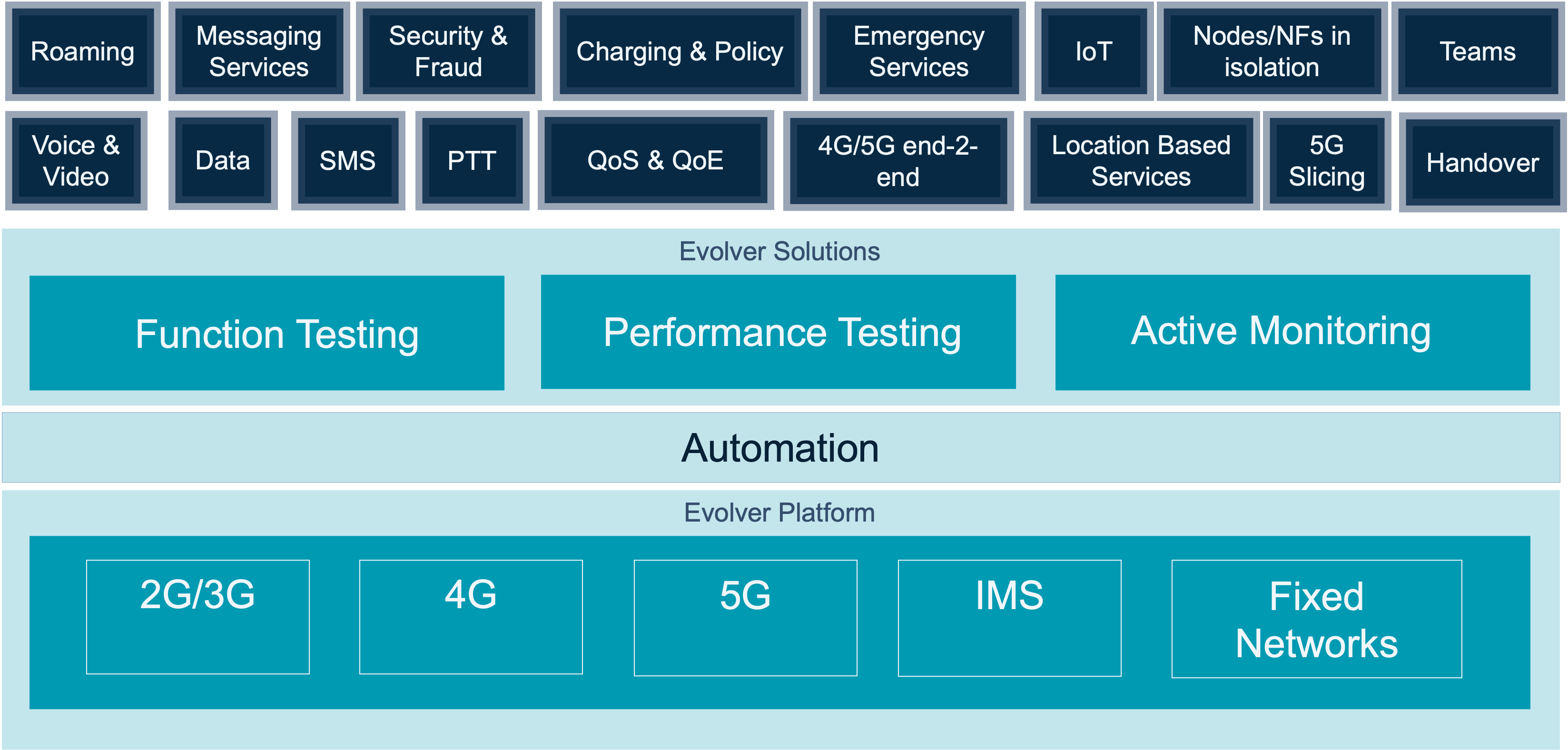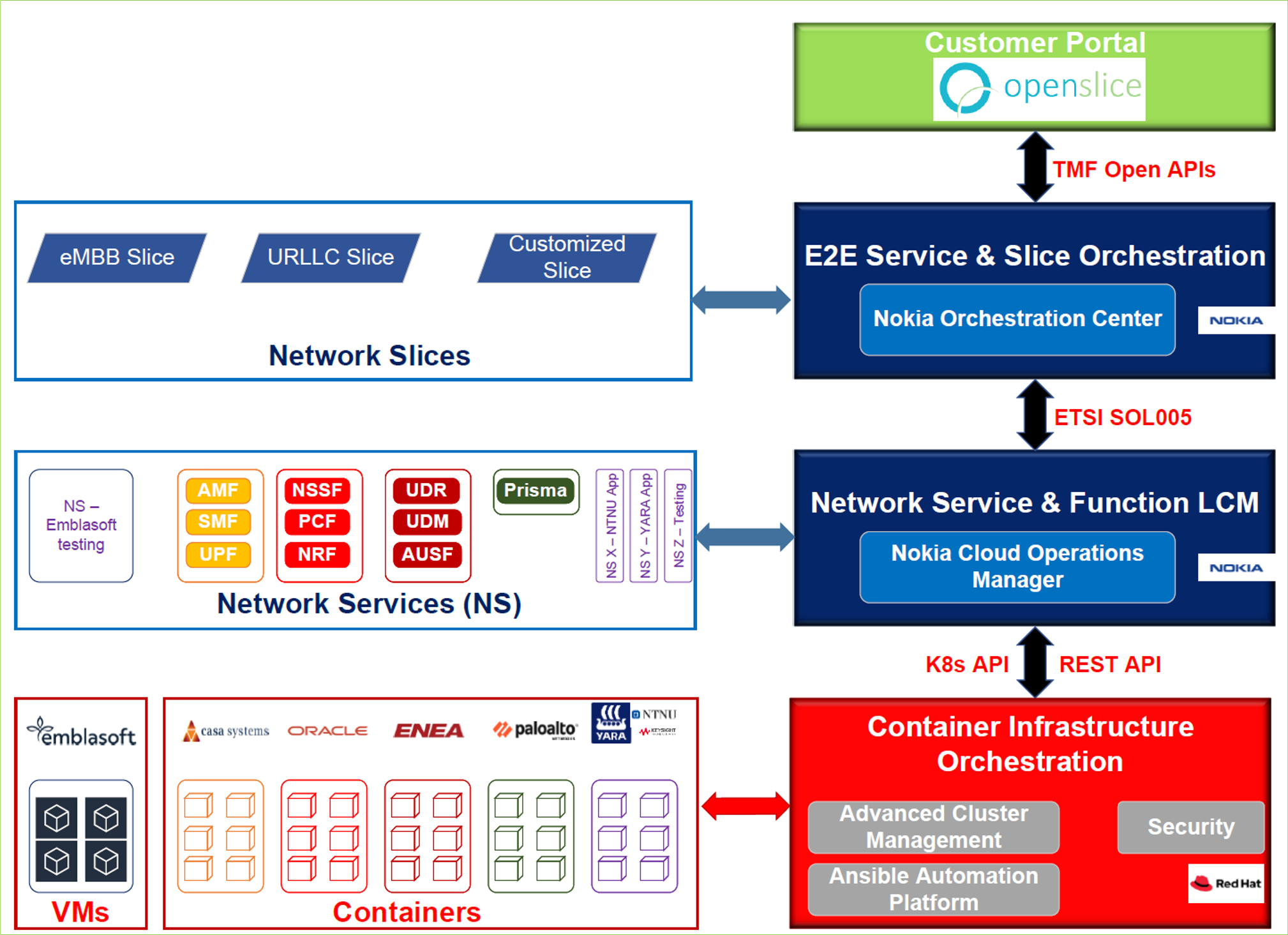
Containerised REST API-based testing in 5G networks
Containerised REST API-based testing in 5G networks
In the 5G era, operators and service providers will need to continuously upgrade existing software and create new applications in order to remain competitively differentiated and monetise the myriad opportunities 5G promises. In turn, this requires operators to embrace a DevOps approach, incorporating CI/CD/CT, to enable continuous innovation and agility.
Testing and assuring 5G services and slices represents a significant challenge for service providers, which involves managing software version control and more frequent, shorter upgrade cycles for cloud-native Network Functions (CNF), continuous deployment and continuous testing, and ensuring that applications and services can scale to the required level, while providing optimal QoS and QoE and meeting KPIs and SLAs. Automated testing is essential, tightly integrated with operational systems.
Continuous 5G software upgrade cycles need continuous testing and active monitoring service assurance
Consider the upgrade cycles of a typical provider. It may require asynchronous upgrades of OpenShift (every 3 months, for example), 5G-Standalone (SA)-based CNFs at least every 6 months, datacentre upgrades every couple of years, and importantly continuous asynchronous CNF updates from an array of separate vendors that contribute to the multi-vendor, open 5G network ecosystem. Such a multi-vendor environment, of course, is enabled by REST APIs, enabling tight integration between all components and processes.
To remain competitive and monetise 5G opportunities, operators need to automate the continuous testing and validation of 5G service chains, applications, network slices, as well as all integrations enabled by REST APIs. At the same time, operators need to be able to test across multiple deployment types, such as private networks, hybrid deployments, and cloud-based architectures.
Consider the different pillars of a 5G network service or slice, all of which also need to be tested. For example:
- Onboarding (PS)
- Functional testing (3GPP)
- Scaling and performance (Load testing)
- Interoperability (Indirect by E2E test)
- Observability and Monitoring (Prometheus and Grafana)
- Policy Verification of for Capability, Firewall and Roaming
- Automated deployments
All these contingencies need to be continuously tested, while ensuring that each software iteration adheres to the appropriate policies. Continuous monitoring and policy verification are essential to ensure that users are getting access to the right services, at the required service level and also from a security perspective. It means that open-source container orchestration systems for automating software deployment, scaling, and management, such as Kubernetes, are required – and that testing must be enabled automatically whenever any new upgrade is made available for a given component. How can operators and service providers achieve this?
Emblasoft Evolver a one-stop shop for containerised testing of Rest APIs
Emblasoft Evolver is a flexible, scalable, comprehensive test and validation platform that includes active monitoring for assuring service levels throughout the lifecycle of software, services, and slices. It supports multiple protocols in parallel – from mobile access for 4G and 5G to the core, including Diameter, SS7, 5G SBA, and application protocols such as SIP, RCS, HTTP, DNS, Mail (IMAP, POP3, etc), to name just a few.
Our REST API interfaces enables integration with orchestration platforms, such as Red Hat OpenShift and Oracle Orchestration, providing full alignment with new deployment models. Hundreds of network test cases and scenarios can be created and executed by distributed active agents, supporting CI/CD/CT models. Our powerful script editor enables configuration of different scenarios, backed by a library of traffic cases and models. What this means is that new releases can easily be tested in automated cycles.
Evolver can monitor data, voice, SMS, Push-to-Talk, and many other mission-critical services that need to be continuously tested. See Figure 1.
Figure 1. Emblasoft Evolver: One platform for testing multiple use cases.

Evolver operates by simulating gNodeBs to emulate different UE scenarios. At its most basic, it can simulate two UEs registering on the network, establishing a PDU session, and then run realistic traffic, scalable to thousands of users, to analyse and optimise network behaviour. Evolver can also control the N6 interface, for example to test UDP data (for time-sensitive applications such as gaming and Domain Name System (DNS) lookups), as well as web servers and web applications. We can simulate gNodeBs on both the internet and service side.
Multi-vendor containerised test and validation
Emblasoft Evolver also supports multi-vendor, containerised test and validation project/platforms, such as the recent project led by Telenor that supports the testing of orchestration platforms, such as Oracle, as well as security protocols and layers.
In essence, it provides a one-stop shop covering the entire network. It acts as a containerised customer portal for testing and measuring network performance parameters and KPIs, and enables full control of all aspects to run tests over open REST APIs. Figure 2 shows our multi-vendor 5G SA Core orchestration architecture – with integration via REST to enable the automated testing asynchronous deployment updates requires.
Figure 2. Emblasoft’s role in a multi-vendor 5GSA Core orchestration architecture

Emblasoft Evolver supports third-party integrations
Finally, Evolver supports third-party integrations, meaning that it can seamlessly integrate with your existing architecture and business processes – so, you can choose different visualisation tools, or other platforms for exporting data.
Our containerised testing platform enables full control over REST APIs, enabling users to pull up a container to simulate the gNodeB, which can then be tested and then closed, or left open where it will perform continuous testing of services and slices. The data is then analysed and, if a slice is not performing as intended, Evolver sends an alert to Red Hat Ansible, where remedial action can be performed.
In conclusion, the Emblasoft Evolver test and validation platform, incorporating active monitoring, can assure network performance and service levels on an iterative DevOps-based level, while providing active monitoring to continuously assure service and slice performance throughout the lifecycle.
It provides a solution for some of the major challenges facing operators and service providers, including the move to hybrid environments, the need for asynchronous, continual upgrade, continuous monitoring, and policy and security verification.
Evolver is a flexible platform, with multi-protocol support, that enables REST API testing with full control and flexible parameterisation. It can integrate with inputs for Control and Orchestration, as well as outputs for Analytics and Alarms.
To find out more, watch this video presentation by Emblasoft Product Marketing Manager, Johan Ledin, by clicking here. If you would like to speak to one of our experts about Emblasoft Evolver, please contact us.